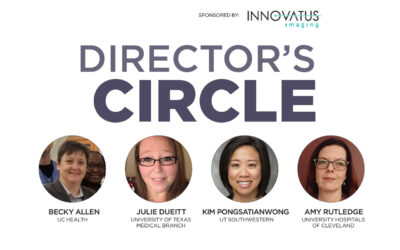By Manny Roman
 I often receive nuggets of wisdom while watching television. Sometimes these nuggets cause me to think more deeply about the meaning behind what I heard. Recently I found one that did just that. Here is the quote: “Until the day is completely over there is a chance it can be remembered for something else.”
I often receive nuggets of wisdom while watching television. Sometimes these nuggets cause me to think more deeply about the meaning behind what I heard. Recently I found one that did just that. Here is the quote: “Until the day is completely over there is a chance it can be remembered for something else.”
I found this to be fairly profound when examined. When the events of any particular day will cause the memory of that day to be received as negative, undesirable, troubling or any other disturbing way, there is still a chance to find a more positive memory for that day. Obviously a truly devastating event may prove too dominating to even think of searching for a positive end of the day. The quote, in my opinion, applies to less devastating events.
I believe that the option to look for and create a good ending to every day is probably a very good thing. It provides gratitude for the day’s end and a calmer opportunity to relax for the remainder of the day. Let your subconscious dwell on the troubles of the day and a solution may present itself.
I was prepared at this point to speak on making this a habit. The conventional speak on habit-forming is that it takes 21 days to make a habit, either good or bad. I was curious as to how this 21-day thing was determined. I was surprised by the answer.
It seems that a plastic surgeon named Maxwell Maltz discovered that it took his patient about 21 days to become accustomed to the surgical changes. A nose job or an amputation took about 21 days for the patient to adjust. He noticed that it also took him 21 days to adjust to a new habit.
In 1960 he published a book called Psycho-Cybernetics and sold over 30 million copies. Referring to what he observed in his patients, he said in the book, “These and many other commonly observed phenomena tend to show that it requires a minimum of about 21 days for an old mental image to dissolve and a new one to jell.” Voila! Everyone, including the “self-help” professionals ran with the 21-day number; “It takes 21 days to from a habit.” I have been guilty of advancing this myth myself.
Now 21 days is short enough to be encouraging and inspiring. It is long enough to be credible. It also is not very truthful. Dr. Maltz said, “about 21 days” and it was not a scientific experiment. It was an observation regarding specific circumstances around him. So how long does it actually take to form a habit?
Phillippa Lally, a health psychology researcher at the University College of London, published a study in the European Journal of Psychology that presents one answer to the question. The study proposes that it takes an average of 66 days for a new behavior to become automatic. Also, this number is dependent on the particular behavior. In her study, it took from 18 days to 254 days for a new habit to be formed. Also of interest is that missing an occasional day had little effect on the formation of the habit.
So what are the takeaways? If you try for the three weeks and still struggle, it just means that it is a habit that, for you, will take longer. It is ok to mess up occasionally as long as you continue the effort. Realize that habits are a process not an all-or-nothing event. Having a realistic expectation that incremental improvements are part of that process will aid in maintaining and stabilizing the process. As they say, all journeys begin with the first step. In the case of forming a new habit, understanding that it is a process and having realistic expectations are two crucial steps.
So… back to the origin of this long-winded column. Practice ending as many days as possible with a good, positive, grateful, and whatever other words you want to use to make the day a good memory. While we are at it, upon awakening each day, make a conscious decision to have a positive attitude. Attitude is a choice and goes a long way in determining how the day will progress. I use a nice glass of wine, to end the day, not to start it.
Manny Roman, CRES, is association business operations manager at Association of Medical Service Providers.







